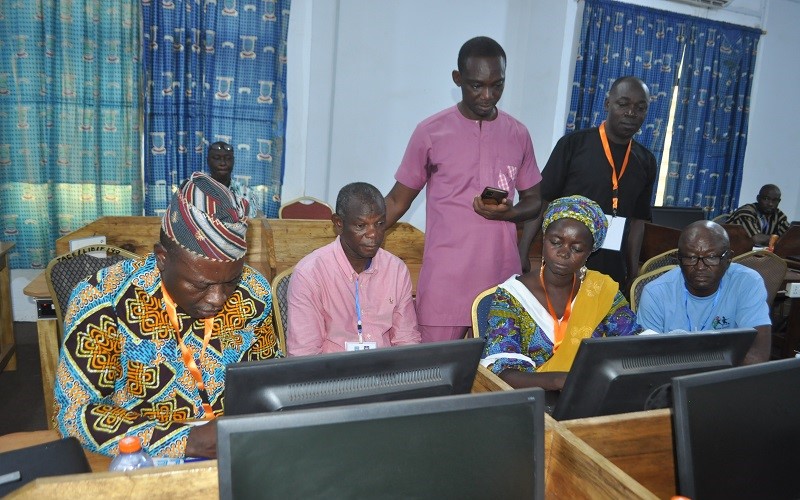
By Dr Betty Ogange
Education Specialist: Teacher Education
On this year’s World Teachers’ Day, we are increasingly aware of the global challenge of ensuring a well-staffed, well-trained and well-supported teacher workforce. Many organisations in education and development continue to focus on providing quality education for all while having to contend with the impact of teacher shortages and attrition.
For this year’s theme, The teachers we need for the education we want: The global imperative to reverse the teacher shortage, UNESCO has aptly put the spotlight on the global teacher shortage crisis, where lack of training, unattractive working conditions and inadequate funding all undermine the teaching profession and compound the global learning crisis.
Significant teacher shortages are still prevalent in many low-income countries. Estimates from a 2022 report indicate that 5.4 million teachers are needed at the primary level in Sub-Saharan Africa and 11.1 million teachers at the secondary level to achieve the targets set for 2030.
Rural and disadvantaged communities are particularly hard hit, as they lack both the numbers and the calibre of teachers needed for quality education. The ripple effect of this shortage is enormous, exacerbating social divides and hindering progress toward global sustainability goals.
The 2023 Global Education Monitoring Report suggests that education systems in high-income countries are also impacted. Teacher shortages in Australia and the USA have resulted in the employment of unqualified STEM teachers. In Australia, for instance, one in three secondary mathematics classes are delivered by non-specialist teachers. This has had a negative impact on student choices to engage in post-secondary STEM studies.
In the province of British Columbia, Canada, a recent survey revealed that 80 per cent of teachers felt the impact of teacher shortage in the previous year, mainly manifesting in an inability to provide essential support to students. Over 6,000 new students have entered public schools this year alone, worsening the teacher shortage.
The local teachers’ federation is addressing what is believed to be a ‘severe crisis’, and efforts are underway to not only create more teacher training seats but also to recognise foreign credentials to augment the educator workforce. In other parts of the province, education authorities have resorted to hiring uncertified on-call teachers to mitigate the growing pressure.
There is a need to find ways of using existing resources differently, of expanding access to quality learning opportunities for teachers at affordable cost, and providing alternative pathways to initial teacher training globally. Open and distance learning (ODL) offers unique advantages that would not only address teacher shortages but may actively contribute to teacher retention.
Teachers can integrate advanced learning into their schedules, evolving in their roles without disrupting their current commitments. This ease of continuous professional development acts as a motivation, keeping educators engaged and rooted in the profession.
COL remains committed to its mission of assisting governments, institutions and organisations to expand the scale, efficiency and quality of learning and teacher development using appropriate open, distance and technology-based approaches, as well as open educational resources (OER). Innovations such as artificial intelligence (AI) promise to revolutionise these approaches further, enhancing the adaptability and personalisation of learning experiences.
COL’s platforms, MOOCs for Development and COLCommons, respectively, provide no-cost access to massive open online courses (MOOCs) and short courses for teachers globally. Individual countries can adapt courses for in-country offerings. For instance, COL’s partner institution in Trinidad and Tobago offered one such course and covered 50 per cent of the entire teaching population in the country.
The AptusPi – a low-cost offline virtual classroom developed by COL – is a server that works with a solar charger and a wireless router and costs approximately CAD 150. It provides learners and teachers in remote locations with access to digital resources. This device has been successfully deployed in 13 countries, with the most recent partnerships evolving in Ghana, Nigeria and Zambia.
With its inherent flexibility, open, distance and technology-enabled learning empowers teachers to choose their learning hours, ensuring they can juggle personal responsibilities alongside other commitments in their profession. This balance will likely play a pivotal role in job satisfaction, reducing professional fatigue and burnout. AI has the potential to further enhance and personalise the ODL experience for educators.
COL’s advocacy for and work in open, distance and technology-enabled learning continues to showcase world-class expertise in the area, with staff working flexibly with the resources available to meet the needs of various partners, particularly in developing countries.
We invite all stakeholders — governments, educational institutions, and the global community — to come together to offer diverse learning opportunities for teachers and provide the recognition that teachers need to stay knowledgeable, motivated, connected and passionately engaged in the profession.


